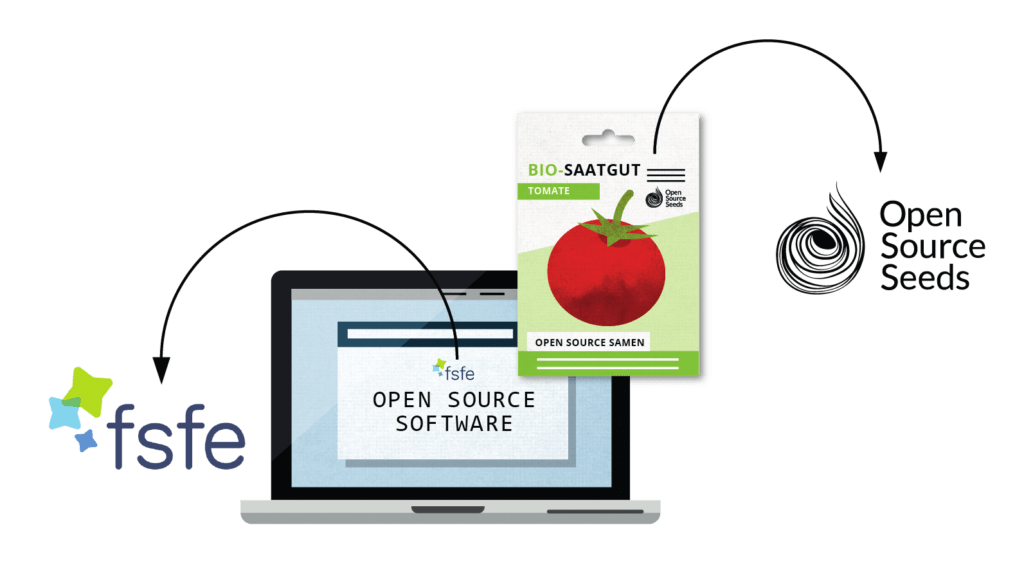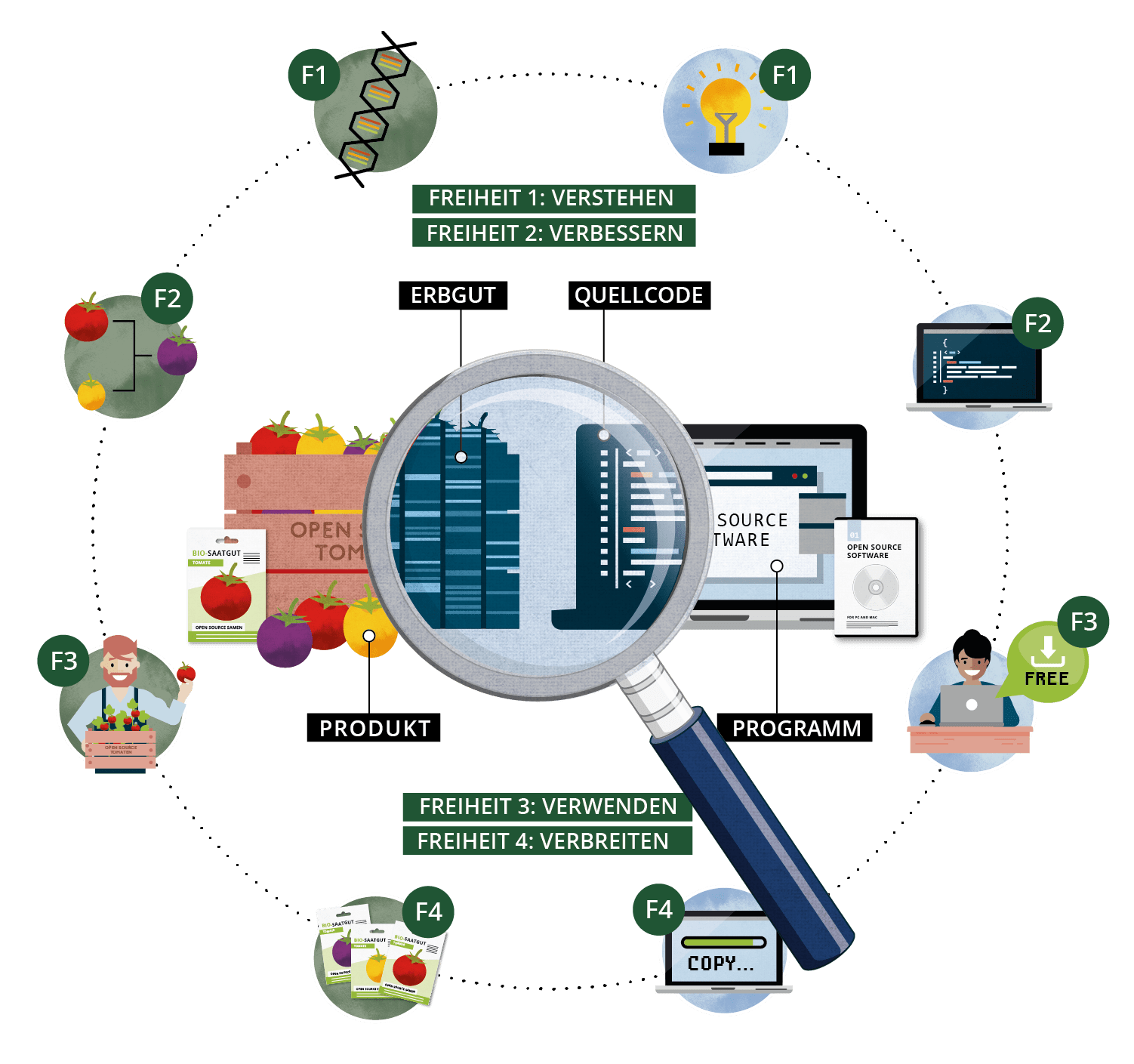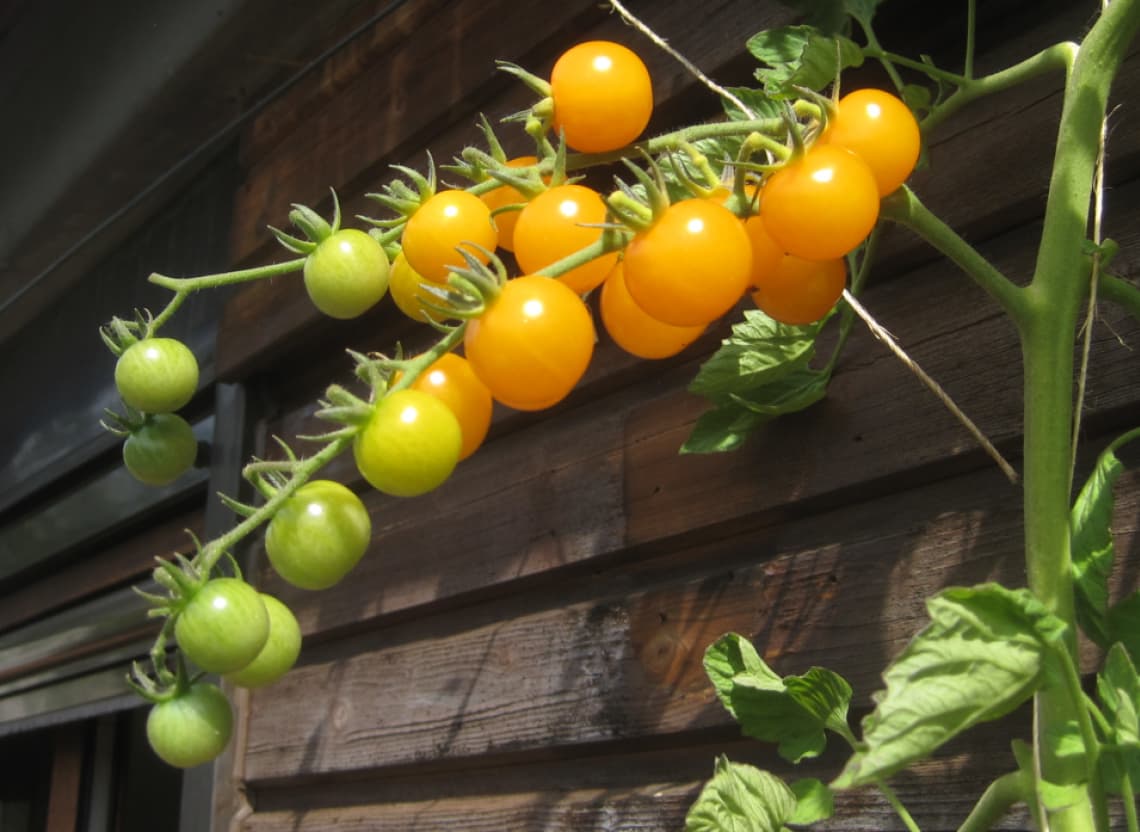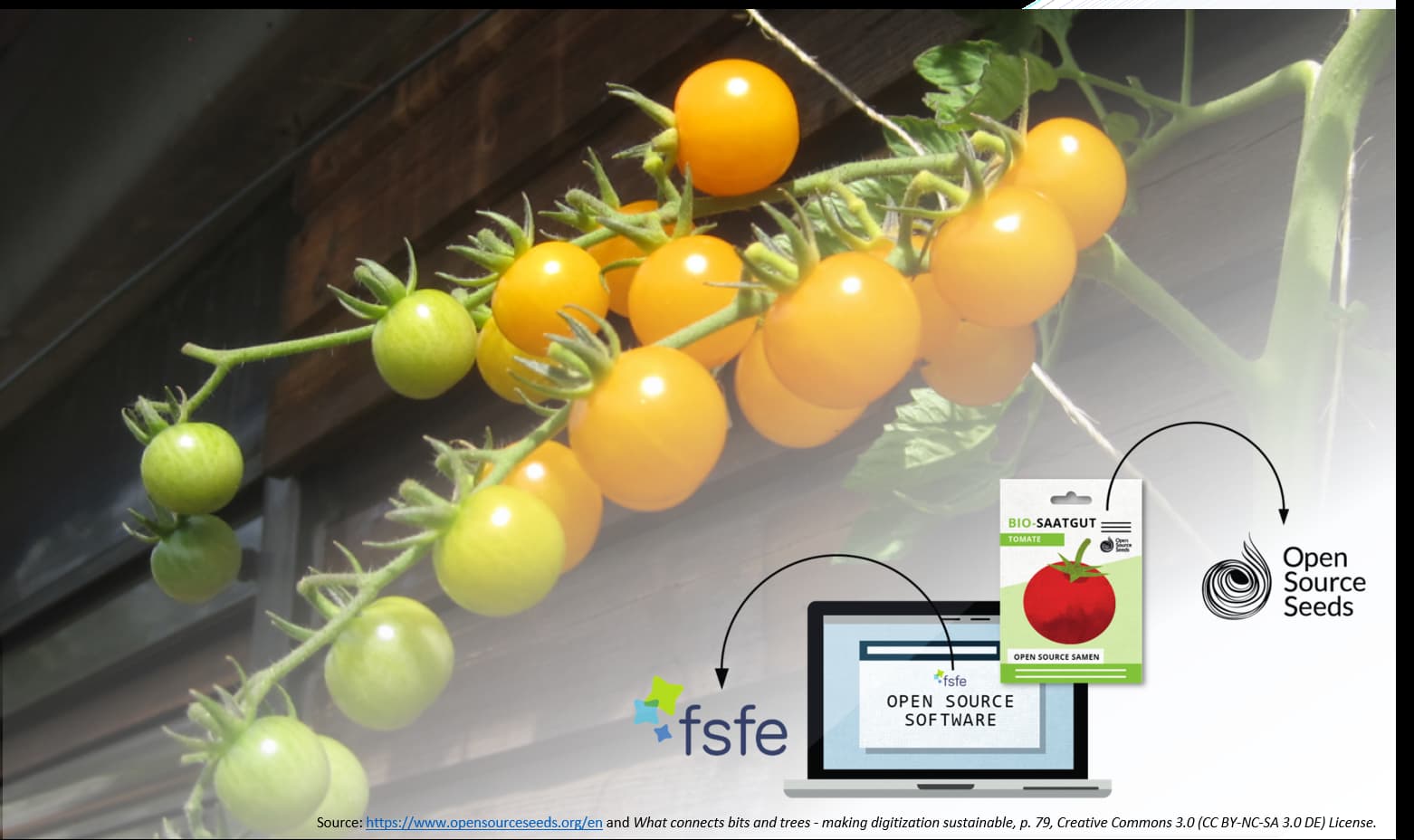What do Open Source Seeds and Open Source Software have in common?
Open source seeds - Freedom you can taste!
Did you know that the freedom of our seeds is in danger? I have to admit I just learned about it a few days ago! Just as for open source software, patents for seeds are owned by very few big monopolies for seeds.
Traditionally, seeds are common good. However, more and more seeds are being privatized by claiming patents and plant variety protection. Today, a few chemical companies control the majority of the commercial seed market. Seed monopolies destroy variety. They decide what is put on our plates. They make their profits with just a few high-performance varieties. The free access to seeds is becoming more and more restricted. As a result, agriculture is becoming more and more uniform. Variety and taste diversity are being lost more and more. Does this sound familiar?
Diversity instead of corporate power
Diversity of seeds is necessary, because every field is different. A rich harvest is only possible if the plant is suited to the soil and climate. That is why diversity of seed varieties is indispensable for
- the adaptation of agriculture to climate change,
- less toxins and chemicals on the field,
- the feeding of an expected 11 billion people.

Open source creates diversity
What does freedom of seeds and freedom of software have in common? The open source principle was copied from free software and transferred to seeds. It protects seeds as a public good and thus enables a free exchange and a common further development. Many independent breeders can thus become active. Through the free access to open source seeds a variety can be created again.
Just like free software, open source seeds make them a public good for all. With the open source license, new varieties are protected from patents and from appropriation by large corporations. The 3 rules of Open Source Seeds:
- Everyone is free to use the seed.
- Nobody may privatize the seed or its further development.
- Future recipients are given the same rights and obligations.
The Free Software licenses were the model for the development of this license. The Free Software Foundation Europe formulates the principles for free software as follows:
- The freedom to run the program, for any purpose.
- The freedom to study how the program works, and adapt it to your needs.
- The freedom to redistribute copies so you can help your neighbor.
- The freedom to improve the program, and release your improvements to the public, so that the whole community benefits.

Source: What connects bits and trees - making digitization sustainable, p. 79, Creative Commons 3.0 (CC BY-NC-SA 3.0 DE) License
These principles are expressed through concrete Free Software licenses such as the GNU General Public License which is used by OpenProject.

Source: What connects bits and trees - making digitization sustainable, p. 80, Creative Commons 3.0 (CC BY-NC-SA 3.0 DE) License
Seeds like software - a question of license. Therefore we want to support freedom for saturated goods and software.
The Open Source Tomato „Sunviva“
I have just received the open source seeds for the open source tomato “Sunviva” distributed by the Environmental Agency of Dortmund. Thank you very much! We will keep you posted about the developments of our open source tomatoes. ;-)

More information about Open Source Seeds can be found on www.opensourceseeds.org. This initiative is supported among many others by Do-FOSS, the initiative for the use of Free and Open Source Software (FOSS) by the City of Dortmund.



